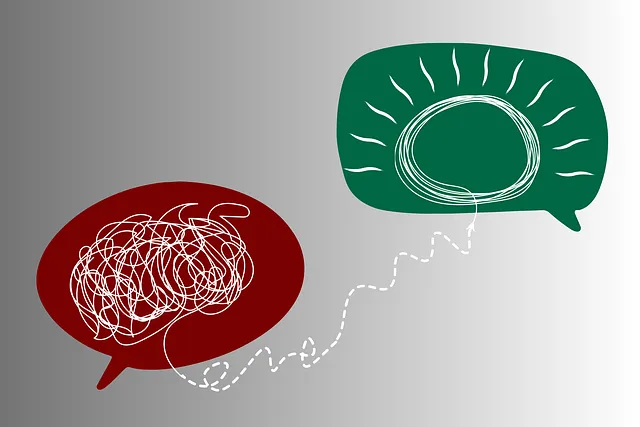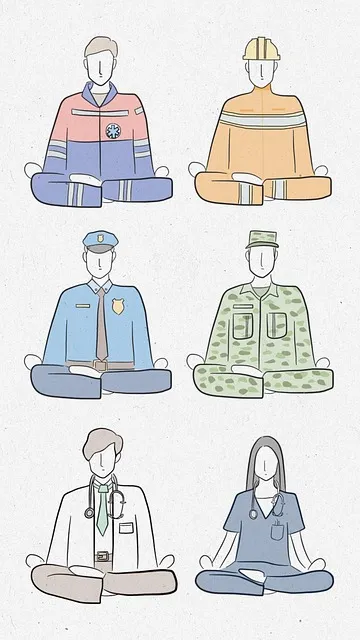The stigma around mental illness prevents many from seeking help, causing worsened symptoms and decreased quality of life. To combat this, strategies like open conversations, education, early intervention (e.g., Mindfulness Meditation), and policy advocacy are crucial. Wheat Ridge Kaiser Permanente leads in stigma reduction by offering easily accessible mental health appointment numbers, comprehensive staff training, online support groups, and tracking key performance indicators to measure success. These initiatives aim to create an inclusive environment for improved patient outcomes in a stigma-free mental health care system.
Mental illness stigma remains a significant barrier to seeking help, with many individuals avoiding necessary support due to fear of judgment. This article explores efforts to reduce this stigma, focusing on innovative strategies like those employed by Wheat Ridge Kaiser Permanente. We’ll delve into their approach, effective advocacy methods, and measurement techniques, emphasizing the importance of understanding barriers like social perceptions and access to care, represented by the Wheat Ridge Kaiser Permanente mental health appointment number.
- Understanding Stigma: Barriers to Seeking Help
- Wheat Ridge Kaiser Permanente's Approach to Stigma Reduction
- Strategies for Effective Mental Health Advocacy
- Measuring Success: Evaluating Stigma Reduction Efforts
Understanding Stigma: Barriers to Seeking Help

Stigma surrounding mental illness is a significant barrier to individuals seeking help for their psychological well-being. Many people struggling with conditions like anxiety, depression, or bipolar disorder often face societal prejudice and discrimination, which can make them hesitant to reach out for support. This stigma creates an additional layer of stress, causing individuals to internalize their struggles and avoid professional assistance. As a result, they might suffer in silence, leading to worsened symptoms and decreased quality of life.
Understanding these barriers is crucial in implementing effective stigma reduction strategies. Encouraging open conversations about mental health, promoting education, and advocating for policies that support mental well-being (such as Mental Health Policy Analysis and Advocacy) can help dispel myths and encourage early intervention. Techniques like Mindfulness Meditation have also been shown to reduce symptoms of anxiety and depression, fostering self-care practices that may make individuals feel more comfortable discussing their experiences. Moreover, ensuring accessibility to resources like those offered by Wheat Ridge Kaiser Permanente for mental health appointments can play a vital role in breaking down barriers and encouraging folks to prioritize their mental health.
Wheat Ridge Kaiser Permanente's Approach to Stigma Reduction

Wheat Ridge Kaiser Permanente has taken a proactive approach to stigma reduction by prioritizing mental health care and education. They understand that breaking down barriers associated with seeking professional help is essential for improved patient outcomes. Their strategy involves several key components. Firstly, they offer accessible mental health appointment numbers, ensuring individuals can connect with professionals easily. This direct approach challenges the traditional hurdles that often prevent people from reaching out.
Additionally, Wheat Ridge Kaiser Permanente invests in comprehensive training programs, such as Healthcare Provider Cultural Competency Training and Risk Assessment for Mental Health Professionals, to equip staff with the necessary skills to address mental health concerns sensitively and effectively. These initiatives foster an environment where both patients and healthcare providers feel supported and empowered, ultimately contributing to a more inclusive and stigma-free mental health care system.
Strategies for Effective Mental Health Advocacy

Mental health advocacy plays a pivotal role in stigma reduction by raising awareness and fostering understanding. Effective strategies include sharing personal stories to humanize mental illness, utilizing social media platforms for educational campaigns, and engaging in community events that promote open conversations about mental health. Organizations like Wheat Ridge Kaiser Permanente can lead the way by providing accessible resources, such as online support groups and workshops focused on topics like Burnout Prevention Strategies for Healthcare Providers.
Additionally, integrating practices like Mindfulness Meditation into daily routines can empower individuals to manage stress and improve their Emotional Well-being Promotion Techniques. These initiatives not only benefit those struggling with mental health issues but also contribute to a culture that prioritizes mental wellness for everyone. By making mental health appointments at Wheat Ridge Kaiser Permanente more accessible and encouraging open dialogues, we can collectively work towards reducing stigma and creating a supportive environment.
Measuring Success: Evaluating Stigma Reduction Efforts

Measuring success in stigma reduction efforts is paramount to understanding what works and where improvements are needed. At Wheat Ridge Kaiser Permanente, they track key performance indicators (KPIs) following mental health appointments to gauge public perception shifts. These KPIs may include patient satisfaction with care, perceived stigma levels before and after the appointment, as well as referral rates for further support. By analyzing these metrics, healthcare professionals can identify successful strategies, such as providing accurate information about mental illness through educational initiatives or training sessions for both patients and providers.
Additionally, evaluating progress involves comparing data over time to ensure sustained positive changes. Incorporating patient feedback and outcomes in risk assessment tools, like those used by mental health professionals, is crucial. This data-driven approach not only informs future stigma reduction efforts but also encourages the development of effective self-care routines for better mental health. Moreover, stress reduction methods can be integrated into these initiatives to benefit both patients and practitioners, fostering a more supportive environment that promotes open conversations about mental illness.
Mental illness stigma reduction is a multifaceted endeavor, requiring efforts from healthcare providers, advocates, and communities. As demonstrated by Wheat Ridge Kaiser Permanente’s successful initiatives, combining education, access to care, and advocacy can significantly decrease stigma. By fostering open conversations and implementing evidence-based strategies, we can create an environment where individuals feel comfortable seeking mental health support. Remember that every step towards understanding and acceptance matters, and with continued efforts, we can work towards a more inclusive society for those managing mental health challenges. For those seeking assistance, Wheat Ridge Kaiser Permanente’s commitment to mental health services, accessible through their appointment number, offers a promising path forward in navigating the journey to healing.






